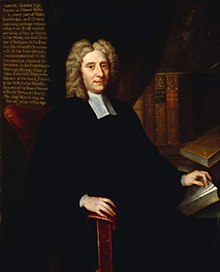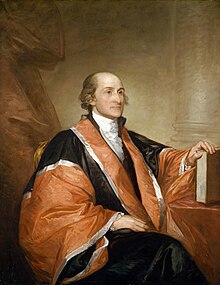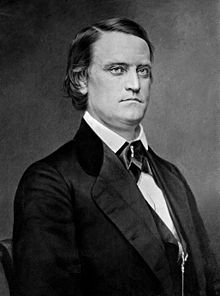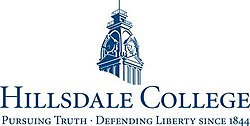May 17 is the 137th day of the year (138th in leap years) in the Gregorian calendar. There are 228 days remaining until the end of the year.
Holidays
- Birthday of the Raja (Perlis)
- Christian feast day:
- Children’s Day (Norway)
- Constitution Day (Nauru)
- Constitution Day (Norway)
- Earliest date on which Trinity Sunday can fall, while June 20 is the latest; celebrated on the first Sunday after Pentecost. (Western Christianity)
- Feast of ‘Aẓamat (Bahá’í Faith)
- Galician Literature Day or Día das Letras Galegas (Galicia)
- National Day Against Homophobia (Canada)
- International Day Against Homophobia and Transphobia aka IDAHO
- Liberation Day (Democratic Republic of the Congo)
- National Famine Memorial Day (Ireland)
- Navy Day (Argentina)
- Norwegian Constitution Day (Norway)
- World Hypertension Day
- World Information Society Day (International)
History
In 1395, Battle of Rovine, Wallachians defeat an invading Ottoman army.
In 1521, Edward Stafford, 3rd Duke of Buckingham, is executed for treason.
In 1536, George Boleyn, 2nd Viscount Rochford and four other men are executed for treason.
In 1536, The annulment of Henry VIII and Anne Boleyn’s marriage.
In 1590, Anne of Denmark is crowned Queen of Scotland.
In 1642, Paul Chomedey de Maisonneuve (1612–1676) founds the Ville Marie de Montréal.
In 1673, Louis Jolliet and Jacques Marquette begin exploring the Mississippi River.
In 1727, Catherine I of Russia (b. 1684) dies. She the second wife of Peter I of Russia, reigned as Empress of Russia from 1725 until her death. The life of Catherine I was said by Voltaire to be nearly as extraordinary as that of Peter the Great himself. There are no documents that confirm her origins. Said to have been born on 15 April 1684 (o.s. 5 April), she was originally named Marta Helena Skowrońska. Marta was the daughter of Samuel Skowroński, later spelt Samuil Skavronsky, a Roman Catholic Polish peasant from Lithiuania, who in 1680 married Dorothea Hahn at Jakobstadt. Her mother is named in at least one source as Elisabeth Moritz.
Though no record exists, Catherine and Peter are described as having married secretly between 23 Oct and 1 Dec 1707 in St. Petersburg. They had twelve children, two of whom survived into adulthood, Yelizaveta (born 1709) and Anna (born 1708). Peter had moved the capital to St Petersburg in 1703. While the city was being built he lived in a three-room log cabin with Catherine, where she did the cooking and caring for the children, and he tended a garden as though they were an ordinary couple. The relationship was the most successful of Peter’s life and a great number of letters exist demonstrating the strong affection between Catherine and Peter. As a person she was very energetic, compassionate, charming and always cheerful. She was able to calm Peter in his frequent rages and was called in to attend him during his epileptic seizures.
Catherine continued to accompany Peter on his Pruth Campaign in 1711. There Catherine was said to have saved Peter and his Empire, as related by Voltaire in his book Peter the Great. Surrounded by overwhelming numbers of Turkish troops, Catherine suggested before surrendering, that her jewels and those of the other women be used in an effort to bribe the Ottoman grand vizier Baltacı Mehmet Pasha into allowing a retreat. Mehmet allowed the retreat, whether motivated by the bribe or considerations of trade and diplomacy. In any case Peter credited Catherine and proceeded to marry her again (this time officially) at Saint Isaac’s Cathedral in St. Petersburg on 9 February 1712. Catherine was Peter’s second wife; he had previously married and divorced Eudoxia Lopukhina, who had borne him the Tsarevich Alexis Petrovich. Upon their wedding, Catherine took the style of her husband and became Tsarina. When Peter elevated the Russian Tsardom to Empire, Catherine became Empress. The Order of Saint Catherine was instituted by her husband on the occasion of their wedding.
In 1729, Samuel Clarke, English clergyman and philosopher (b. 1675) dies. He was an English philosopher and Anglican clergyman. He is considered the major British figure in philosophy between John Locke and George Berkeley.
Clarke was born in Norwich, the son of Edward Clarke, an alderman of Norwich and Member of Parliament, and brother of John Clarke. He was educated at Norwich School and Caius College, Cambridge. His tutor at Caius was John Ellis, a personal friend of Isaac Newton, but who in natural philosophy taught in line with the Cartesianism that prevailed in the university. Clarke, however, came to adopt the new physical system of Newton; he used the vehicle of an annotated translation of a work on physics in the Cartesian tradition to comment on the superiority of the Newtonian system. This textbook was published in 1697, and in the same year Clarke met the Newtonian William Whiston. It was a chance encounter in Norwich, but Whiston was then chaplain to John Moore, bishop of Norwich. Having taken holy orders, Clarke became chaplain to Moore in Whiston’s place, and was presented by Moore to the rectory of Drayton, Norfolk. In 1706, through the influence of Moore, Clarke obtained the rectory of St Benet Paul’s Wharf, London. Soon afterwards Queen Anne appointed him one of her chaplains in ordinary, and in 1709 presented him to the rectory of St James’s, Westminster. His church brought Clarke into personal contact with Newton.
Clarke’s reputation rested largely on his effort to demonstrate the existence of God, and his theory of the foundation of rectitude. The former is not a purely a priori argument, and it was not presented as such. The intelligence, for example, of the self-existence and original cause of all things is, he says, “not easily proved a priori,” but “demonstrably proved a posteriori from the variety and degrees of perfection in things, and the order of causes and effects, from the intelligence that created beings are confessedly endowed with, and from the beauty, order, and final purpose of things.”
In 1775, American Revolutionary War: the Continental Congress bans trade with Quebec.
In 1792, The New York Stock Exchange is formed under the Buttonwood Agreement.
In 1805, Muhammad Ali becomes Wāli of Egypt.
In 1808, Napoleon I of France orders the annexation of the Papal States to the French Empire.
In 1814, Occupation of Monaco changes from French to Austrian.
In 1814, The Constitution of Norway is signed and Crown Prince Christian Frederick of Denmark is elected King of Norway by the Norwegian Constituent Assembly.
In 1829, John Jay, American politician and diplomat, 1st Chief Justice of the United States (b. 1745) dies. On the night of May 14, 1829, Jay was stricken with palsy, probably caused by a stroke. He lived for three days, dying in Bedford, New York, on May 17. Jay had chosen to be buried in Rye, where he lived as a boy. In 1807, he had transferred the remains of his wife Sarah Livingston and those of his colonial ancestors from the family vault in the Bowery in Manhattan to Rye, establishing a private cemetery. Today, the Jay Cemetery is an integral part of the Boston Post Road Historic District, adjacent to the historic Jay Estate. The Cemetery is maintained by the Jay descendants and closed to the public. It is the oldest active cemetery associated with a figure from the American Revolution. He was an American statesman, Patriot, diplomat, one of the Founding Fathers of the United States, signer of the Treaty of Paris, and first Chief Justice of the United States (1789–95). Jay, a proponent of strong, centralized government, worked to ratify the U.S. Constitution in New York in 1788 by pseudonymously writing five of The Federalist Papers, along with the main authors Alexander Hamilton and James Madison. After the establishment of the U.S. government, Jay became the first Chief Justice of the United States, serving from 1789 to 1795.
In 1849, A large fire nearly burns St. Louis, Missouri to the ground.
In 1863, Rosalía de Castro publishes Cantares Gallegos, the first book in the Galician language.
In 1865, The International Telegraph Union (later the International Telecommunication Union) is established in Paris.
In 1869, Imperial Japanese forces defeat the remnants of the Tokugawa shogunate in the Battle of Hakodate to end the Boshin War.
In 1875, Aristides wins the first Kentucky Derby.
In 1875, John C. Breckinridge, American lawyer and politician, 14th Vice President of the United States (b. 1821) dies after a surgical procedure. He was a lawyer and politician from the U.S. state of Kentucky. He represented the Commonwealth in both houses of Congress and in 1857, became the 14th and youngest-ever Vice President of the United States (1857–1861). Serving in the U.S. Senate at the outbreak of the Civil War, he was expelled after joining the Confederate Army. He remains the only Senator of the United States convicted of treason against the United States of America by the Senate. He was appointed Confederate Secretary of War late in the war. A member of the Breckinridge family, he was the grandson of U.S. Attorney General John Breckinridge, son of Kentucky Secretary of State Cabell Breckinridge and father of Arkansas Congressman Clifton R. Breckinridge.
After non-combat service in the Mexican–American War, Breckinridge was elected as a Democrat to the Kentucky House of Representatives in 1849 where he took a states’ rights position against legal interference with slavery. Elected to the U.S. House of Representatives in 1851, he allied with Stephen A. Douglas in support of the Kansas–Nebraska Act. After reapportionment in 1854 made his re-election unlikely, he declined to run for another term. He was nominated for vice-president at the 1856 Democratic National Convention to balance a ticket headed by Pennsylvanian James Buchanan. The Democrats won the election, but Breckinridge had little influence with Buchanan and, as presiding officer of the Senate, could not express his opinions in that body’s debates. In 1859, he was elected to succeed U.S. Senator John J. Crittenden at the end of Crittenden’s term in 1861.
After Southern Democrats walked out of the 1860 Democratic National Convention, the party’s northern and southern factions held rival conventions in Baltimore, Maryland that nominated Stephen Douglas and Breckinridge, respectively, for president. Breckinridge carried most of the southern states but no northern states and lost the election. Taking his seat in the Senate, he urged compromise to preserve the Union although seven states had already seceded. Unionists took control of the state legislature when Kentucky’s neutrality was breached, but Breckinridge fled behind Confederate battle lines where he was commissioned a brigadier general; he was then expelled from the Senate. After the April 1862 Battle of Shiloh, he was promoted to major general, and in October he was assigned to the command of Braxton Bragg. After Bragg charged that Breckinridge’s drunkenness had contributed to Confederate defeats at Stone River and Missionary Ridge, he was transferred to the Trans-Allegheny Department, where he won his most significant victory at the Battle of New Market. After participating in Jubal Early‘s 1864 campaigns in the Shenandoah Valley, he was charged with defending Confederate supplies in Tennessee and Virginia. In February 1865, Confederate President Jefferson Davis appointed him Secretary of War. Concluding that the war was hopeless, he urged Davis to arrange a national surrender. After the fall of the Confederate capital at Richmond, he ensured the preservation of Confederate military and governmental records. He then fled to Cuba, Great Britain, and finally, to Canada. In exile, he toured Europe from August 1866 to June 1868. When President Andrew Johnson extended amnesty to all former Confederates in late 1868, he returned to Kentucky, but resisted all encouragement to resume his political career. Issues from war injuries sapped his health, and after two operations, he died on May 17, 1875.
In 1880, Ziya Pasha, Ottoman writer and translator (b. 1826)
In 1900, Second Boer War: British troops relieve Mafeking.

In 1900, The children’s novel the The Wonderful Wizard of Oz, by L. Frank Baum, is first published in the United States. The first copy is given to the author’s sister.
In 1902, Greek archaeologist Valerios Stais discovers the Antikythera mechanism, an ancient mechanical analog computer.
In 1914, The Protocol of Corfu is signed, recognising full autonomy to Northern Epirus under nominal Albanian sovereignty.
In 1915, The last British Liberal Party government (led by Herbert Henry Asquith) falls.
In 1933, Vidkun Quisling and Johan Bernhard Hjort form Nasjonal Samling — the national-socialist party of Norway.
In 1939, The Columbia Lions and the Princeton Tigers play in the United States’ first televised sporting event, a collegiate baseball game in New York City.
In 1940, World War II: Germany occupies Brussels, Belgium.
In 1940, World War II: the old city centre of the Dutch town of Middelburg is bombed by the German Luftwaffe, to force the surrender of the Dutch armies in Zeeland.
In 1943, World War II: the Dambuster Raids by No. 617 Squadron RAF on German dams.
In 1954, The United States Supreme Court hands down a unanimous decision in Brown v. Board of Education of Topeka, Kansas.
In 1967, Six-Day War: President Gamal Abdel Nasser of Egypt demands dismantling of the peace-keeping UN Emergency Force in Egypt.
In 1969, Venera program: Soviet Venera 6 begins its descent into the atmosphere of Venus, sending back atmospheric data before being crushed by pressure.
In 1970, Thor Heyerdahl sets sail from Morocco on the papyrus boat Ra II to sail the Atlantic Ocean.
In 1973, Watergate scandal: Televised hearings begin in the United States Senate.
In 1974, The Troubles: Thirty-three civilians are killed and 300 injured when the Ulster Volunteer Force (UVF) detonates four car bombs in Dublin and Monaghan, Republic of Ireland. It is the deadliest attack of the Troubles and the deadliest terrorist attack in the Republic’s history. There are allegations that British state forces were involved.
In 1974, Police in Los Angeles raid the Symbionese Liberation Army‘s headquarters, killing six members, including Camilla Hall.
In 1980, General Chun Doo-hwan of South Korea seizes control of the government and declares martial law in order to suppress student demonstrations.
In 1980, On the eve of presidential elections, Maoist guerrilla group Shining Path attacks a polling location in the town of Chuschi, Ayacucho, starting the Internal conflict in Peru.
In 1983, The U.S. Department of Energy declassifies documents showing world’s largest mercury pollution event in Oak Ridge, Tennessee (ultimately found to be 4.2 million pounds), in response to the Appalachian Observer’s Freedom of Information Act request.
In 1983, Lebanon, Israel, and the United States sign an agreement on Israeli withdrawal from Lebanon.
In 1984, Prince Charles calls a proposed addition to the National Gallery, London, a “monstrous carbuncle on the face of a much-loved and elegant friend”, sparking controversies on the proper role of the Royal Family and the course of modern architecture.
In 1987, An Iraqi Dassault Mirage F1 fighter jet fires two missiles into the U.S. Navy warship USS Stark, killing 37 and injuring 21 of her crew.
In 1990, The General Assembly of the World Health Organization (WHO) eliminates homosexuality from the list of psychiatric diseases.
In 1992, Three days of popular protests against the government of Prime Minister of Thailand Suchinda Kraprayoon begin in Bangkok, leading to a military crackdown that results in 52 officially confirmed deaths, many disappearances, hundreds of injuries, and over 3,500 arrests.
In 1995, Shawn Nelson steals a tank from a military installation and goes on a rampage in San Diego resulting in a 25 minute police chase. Nelson is killed by an officer after the tank got stuck on a concrete barrier and tried to break free.
In 1994, Malawi holds its first multi-party elections.
In 1997, Troops of Laurent Kabila march into Kinshasa. Zaire is officially renamed Democratic Republic of the Congo.
In 2000, Arsenal and Galatasaray fans clash in the 2000 UEFA Cup Final riots in Copenhagen
In 2004, The first legal same-sex marriages in the U.S. are performed in the state of Massachusetts.
In 2006, The aircraft carrier USS Oriskany is sunk in the Gulf of Mexico as an artificial reef.
In 2007, Trains from North and South Korea cross the 38th Parallel in a test-run agreed by both governments. This is the first time that trains have crossed the Demilitarized Zone since 1953.
In 2013, Two Metro-North commuter trains collide near Bridgeport, Connecticut injuring at least 72 people.
In 2014, A plane crash in northern Laos kills 17 people.
In 2015, At least nine people are killed and 18 injured, some by law enforcement and others in gunfire exchanges, in a shootout between rival biker gangs in Waco, Texas.
In 2016, The case of Marcus Owens caused a deluge of outrage when it first emerged in early May. Owens claimed on the night of April 30 he was attacked, out of nowhere and without provocation, by three white college-age men, who beat him bloody while screaming racial slurs and landed him in the hospital. Activist students claimed the attack showed a climate of racial hatred in Iowa City, and they also denounced the university for taking until May 4 to issue a statement about the matter. “How many black students must be a victim of a hate crime before an alert is sent out,” one student complained online at the time. But after a two-week investigation, Iowa City police have concluded, after interviewing witnesses and viewing surveillance footage, that no hate crime occurred at all, and that Owens’ account of his injuries was almost completely false.
In 2018, The United States Senate confirmed Gina Cheri Haspel to lead the Central Intelligence Agency becoming the first woman to hold the post on a full-time basis.





